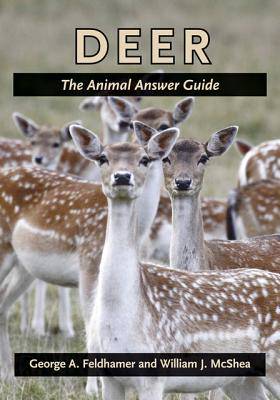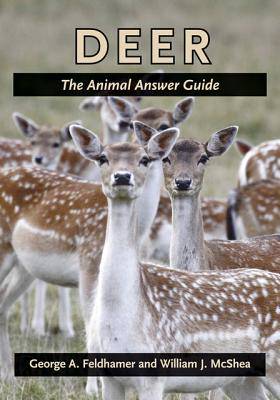
- Retrait gratuit dans votre magasin Club
- 7.000.000 titres dans notre catalogue
- Payer en toute sécurité
- Toujours un magasin près de chez vous
- Retrait gratuit dans votre magasin Club
- 7.000.000 titres dans notre catalogue
- Payer en toute sécurité
- Toujours un magasin près de chez vous
Description
Think of deer and the image that pops into most American's minds is that of a white-tailed deer, the most common large mammal in North America. Most Europeans are more familiar with red deer. It may surprise many people to know that there are actually about 50 species of deer found throughout the world. Here, readers will find nontechnical, expert information about the wide range of diverse deer species.
Did you know that elk and caribou are deer? Or that the earliest fossils of deer are 15 to 20 million years old? Have you ever wondered whether deer swim, play, or see color? How do deer avoid predators and survive the winter? Do deer make good pets or carry contagious diseases? George A. Feldhamer and William J. McShea answer these and other intriguing questions about members of the deer family Cervidae.
From the diminutive pudu of South America that weighs 17 pounds to male moose that weigh close to 2,000 pounds, Feldhamer and McShea explore the biology, evolution, ecology, feeding habits, reproduction, and behavior of deer. They chronicle the relationships between humans and deer--both positive and negative--and discuss the challenges of deer conservation and management.
With vivid color photographs and an accessible and engaging question-and-answer format, this easy-to-read book is the go-to resource on deer. Nature lovers, hunters, and anyone curious about deer will find this fact-filled book both fascinating and full of surprises.
Spécifications
Parties prenantes
- Auteur(s) :
- Editeur:
Contenu
- Nombre de pages :
- 200
- Langue:
- Anglais
- Collection :
Caractéristiques
- EAN:
- 9781421403878
- Date de parution :
- 15-02-12
- Format:
- Livre relié
- Format numérique:
- Ongenaaid / garenloos gebonden
- Dimensions :
- 183 mm x 251 mm
- Poids :
- 566 g







